Prostate Cancer
What is prostate cancer?
Prostate cancer starts in the cells of the prostate gland in men. A cancerous (malignant) tumour is a group of cancer cells that can grow into and destroy nearby tissue.
What leads to prostate cancer?
The main cause is not known but a number of things may increase the risk of developing the condition like:
- Age
- Family History
- Genetic Factors
- Infection
- High Level of Male Hormone
- Diet
- Sedentary Lifestyle
How is prostate cancer diagnosed?
- Blood Test
- Ultrasound of Kidneys, Bladder and Prostate
- Cystoscopy
- Biopsy
- Prostate specific antigen test
- Digital Rectal Exam
How is it treated?
- HORMONAL THERAPY - The main aim of this therapy is to decrease the production of testosterone or to cease its functions. These effects can easily be achieved with medication or by surgical methods. This therapy is also called as androgen deprivation therapy (ADT) or androgen suppression therapy.Androgens stimulate prostate cancer cells to grow.
- CHEMOTHERAPY - This method uses drugs to inhibit the growth of cancer cells. The procedure of chemotherapy is decided by the stage and type of cancer.
- BIOLOGICAL THERAPY - Some artificial substances are used in this method to boost, direct, or restore body’s immune system against cancer. Biological therapy involves the use of living organisms, substances derived from living organisms, or laboratory-produced versions of such substances to treat disease.
- SURGICAL TREATMENT - In this method, entire prostate gland and some surrounding tissue is removed through surgery. This treatment is recommended to treat early stages of the disease.
- RADIOTHERAPY - External beam radiation therapy and brachytherapy are two types of radiation therapies that are used to treat prostate cancer. Both these methods can be used when cancer has not spread to other parts, and is confined to the prostate only. The aim is to destroy the cancer cells, while doing as little harm as possible to nearby tissues, such as the bladder or the back passage.
- CYBERKNIFE – In this method, a small incision is made and areas with cancer cells are made cold, freezing the area with a probe. The CyberKnife System delivers non-invasive treatment for the prostate cancer, where radiation is indicated. It also can be used to treat prostate cancer that has recurred after a radical prostatectomy or previous treatment.
What are the advances in prostate cancer treatment?
- IMMUNOTHERAPY :- In cases where the patient's prostate cancer is resistant to testosterone level reduction via hormone therapy, treatment options are few.. As such, most current developing immunotherapies for prostate cancer are investigating the more targeted treatment of advanced stage disease. Prostate cancer immunotherapy studies are being conducted in the following seven categories: therapeutic vaccines, oncolytic virus therapies, checkpoint inhibitors, adoptive cell therapies, adjuvant immunotherapies, cytokines, and monoclonal antibodies.
- RADIATION THERAPY :- Current methods such as conformal radiation therapy (CRT), intensity modulated radiation therapy (IMRT), and proton beam radiation help doctors avoid giving radiation to normal tissues as much as possible. These methods are expected to increase the effectiveness of radiation therapy while reducing the side effects.
- Technology is making other forms of radiation therapy more effective as well. The radiation doses are planned which approaches for both external radiation therapy and brachytherapy.
- PROSTATE CANCER ABLATION :- Ablation means the removal of diseased body tissue such as cancerous tumors. Applying thermal energy is applied to perform image guided ablation which physically destroys the cancer. Ablation is an alternative to surgery or radiation.
Thermal ablation for prostate cancer has three main advantages over surgery:
- Same day outpatient procedure
- Reduced risk of infection
- Very rapid recovery time and return to normal activities
Ablation is done as a focal treatment with benefits like -
- Targets only the tumor with an extra safety margin
- Avoids damage to healthy prostate tissue .
- It reduces the risk of impaired sexual and urinary function
FOCAL LASER ABLATION generates intense heat that completely encompasses the targeted area.
- ROBOTIC SURGERY Robotic prostatectomy is gaining popularity as a less traumatic and minimally invasive prostate cancer treatment. The Da Vinci robotic prostatectomy helps the surgeon to overcome many of the shortcomings of both open prostatectomy and laparoscopic prostatectomy.
What is the success rate?
The success rate of prostate cancer has been around 90%
Oncology Hospitals in India
| Oncology Top 20. Top Ranked Hospitals for Oncology in India. Get Opinion and cost estimate from any three Hospitals | Times of India National Rank in Oncology | The Week National Rank in Oncology |
|---|---|---|

The India’s First Hospital which is Internationally Accredited by Joint Commission International(JCI) is the Indraprastha Apollo Hospital, New Delhi. It is the best multi-speciality tertiary acute care hospitals with over 700 beds. It... + Read More
Size of Hospital (Beds) : 718
Accredited By :
|
1 | 5 |
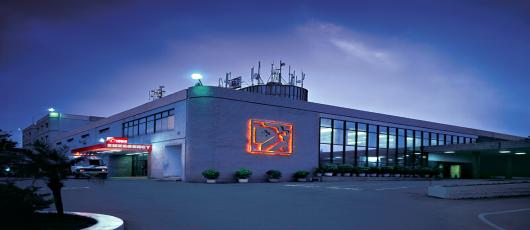
Apollo hospital , Hyderabad is the best hospital in the world , in terms of technical expertise , deliverables and outcomes. The first health city in Asia and a perfect example of an integrated healthcare system offering solutions across... + Read More
Size of Hospital (Beds) : 350
Accredited By :
|
12 | |

Established in the early 1950's under the leadership of the late Shri P.D. Hinduja, our vision is to deliver quality healthcare. As an ultramodern tertiary care hospital in Mumbai, India we are motivated to lead the pathway to medical... + Read More
Size of Hospital (Beds) : 400
Accredited By :
|
14 | |
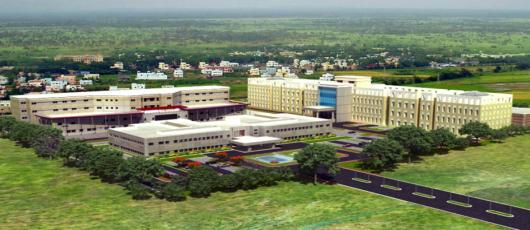
Global Hospitals Group, India's most renowned healthcare services provider offering better care, cutting-edge research and advanced education to caregivers, is one of the country's fast growing chains of Multi Super Specialty Tertiary Care... + Read More
Size of Hospital (Beds) : 1000
Accredited By :
|
15 | |

Max Multi Speciality Hospital, Patparganj, subsidiary of Max healthcare that have 11 top hospitals in Delhi- NCR, Punjab and Uttarakhand with over 1900 bedding facilities including 525 ICU bedding, 2100 world class doctors. They follow a... + Read More
Size of Hospital (Beds) : 500
Accredited By :
|
16 | |

Continental Hospitals is a part of the Parkway Pantai Ltd. Parkway Pantai is one of the region's largest integrated private healthcare groups with a network of 22 hospitals and more than 4,000 beds throughout Asia, including Singapore,... + Read More
Size of Hospital (Beds) : 750
Accredited By :
|
17 | |
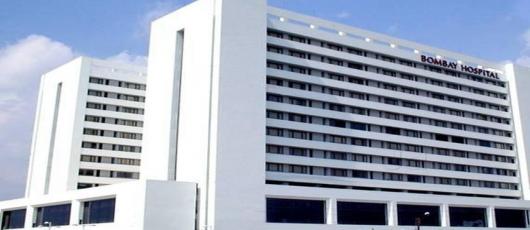
Established over five decades ago, in 1952, The Bombay Hospital was the result of the enormous philanthropy displayed by Shri Rameshwardas Birla, Founder Chairman of the Bombay Hospital Trust. It began as a 440 bed hospital whose objective... + Read More
Size of Hospital (Beds) : 830
Accredited By :
|
18 | |
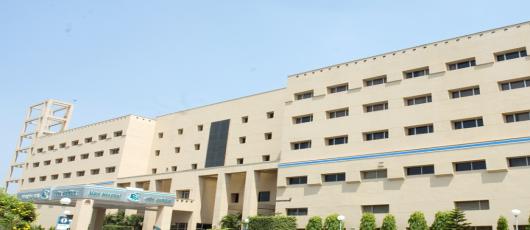
A 510-bedded multispecialty tertiary care hospital – Apollo Gleneagles Hospitals Kolkata, is a perfect blend of technological excellence, complete infrastructure, competent care and heartfelt hospitality - this is how the people, whom we... + Read More
Size of Hospital (Beds) : 150
Accredited By :
|
19 | |

Medanta – The Medicity is one of India's largest multi-super specialty institutes located in Gurgaon, a bustling town in the National Capital Region. Founded by eminent cardiac surgeon, Dr. Naresh Trehan, the institution has been... + Read More
Size of Hospital (Beds) : 1,250
Accredited By :
|
2 | |
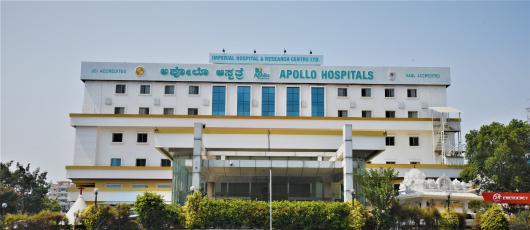
Apollo Hospitals, Bengaluru is a tertiary care leading unit of the Apollo hospitals group. It has made a presence in Bengaluru and reached 42nd Super Specialty Hospital of the crowd. It is a 250 bedded hospital, beautifully redesigned over... + Read More
Size of Hospital (Beds) : 250
Accredited By :
|
20 | |

HealthCare Global Enterprises Ltd, the specialist in cancer care has its headquarters in Bangalore, India and is known to be the only dedicated cancer care network with quality care across 20 centres.
Being a leader in the area of... + Read More
Size of Hospital (Beds) :
Accredited By :
|
3 | 4 |
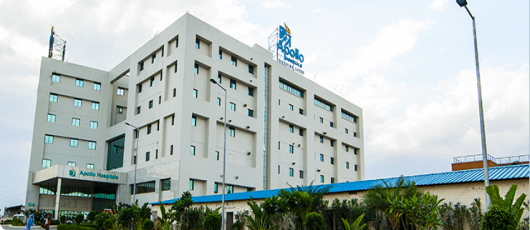
In 1983 , the Apollo Group established the flagship hospital named as Apollo Hospital , Chennai. The Hospital has 60 departments organized by Internationally Trained Doctors , having hi-tech facilities of vaious health disorders and... + Read More
Size of Hospital (Beds) : 500
Accredited By :
|
4 | 2 |
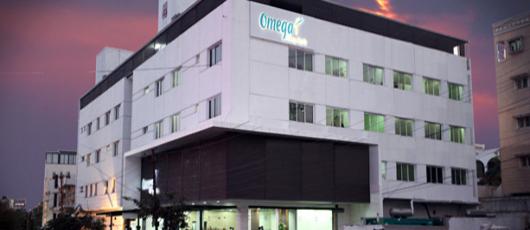
A vision to create a world-class integrated healthcare delivery system in India, entailing the finest medical skills combined with compassionate care gave birth to Omega Hospitals in July 2010. When a few well-known, dedicated Oncologists... + Read More
Size of Hospital (Beds) : 175
Accredited By :
|
5 | 7 |

Jaslok Hospital was set up in 1973 with a very simple mission. Our founders, Jasoti and Lokoomal Chanrai, wanted to ensure that we provide the best possible medical care using state-of-the-art technology to every single patient,... + Read More
Size of Hospital (Beds) : 600
Accredited By :
|
8 |


















































































